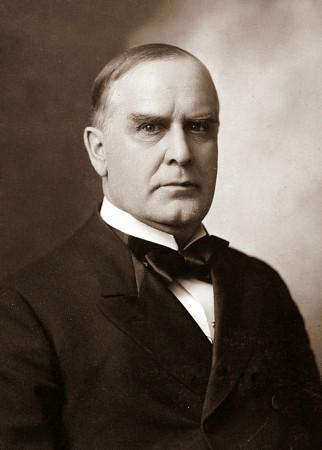
The United States witnessed the greatest example of democracy when William Mckinley, an experienced legislator, was elected on 4 March, 1897 by a margin not seen in decades before then.
Born on 29 January, 1843, in Niles, Ohio, McKinley was elected after the American frontier to the West was shut down. His efforts helped the United States expand in the Pacific and the Caribbean after the Spanish-American War.
He also brought significant business reforms with his Open Door policy, which established the United States as an equal of the great European powers of that era.
However, even with all his achievements and leadership that helped the US establish itself as one of the world's leading nations, McKinley didn't meet a good end: He was shot by anarchist and assassin Leon Czolgosz and died on 14 September, 1901, at the age of 58.
As the world celebrates the former US president's 173rd birth anniversary, here are some of the key reforms implemented during his tenure which brought revolutionary changes in the country.
Domestic Policy
Public Broadcasting Service has said the high trade tariffs favoured by McKinley safeguarded American industries and acted as a major source of income for the government, and was further used for development of civil infrastructures and improving public services.
Foreign Affairs
History Channel has reported that as Spain struggled to end a revolution in Cuba, a supposed act of aggression against the US made McKinley pass a war resolution in 1898 that guaranteed Cuba's independence. The war went for three months and saw the destruction of the Spanish fleet by the US in Manila Bay and eventually Puerto Rico was occupied.
Trade Relations
According to Miller Center, on 5 December, 1899, McKinley sent his third annual message to Congress in which he emphasised strengthening US Navy to benefit overseas commerce and make easier reforms for foreign trades.
With regard to the Philippines, his message read:
"I shall use the authority vested in me by the Constitution and the statutes to uphold the sovereignty of the United States in those distant islands as in all other places where our flag rightfully floats. Aiming only at the public good, we cannot err. A right interpretation of the people's will and of duty cannot fail to insure wise measures for the welfare of the islands which have come under the authority of the United States, and inure to the common interest and lasting honour of our country."
















